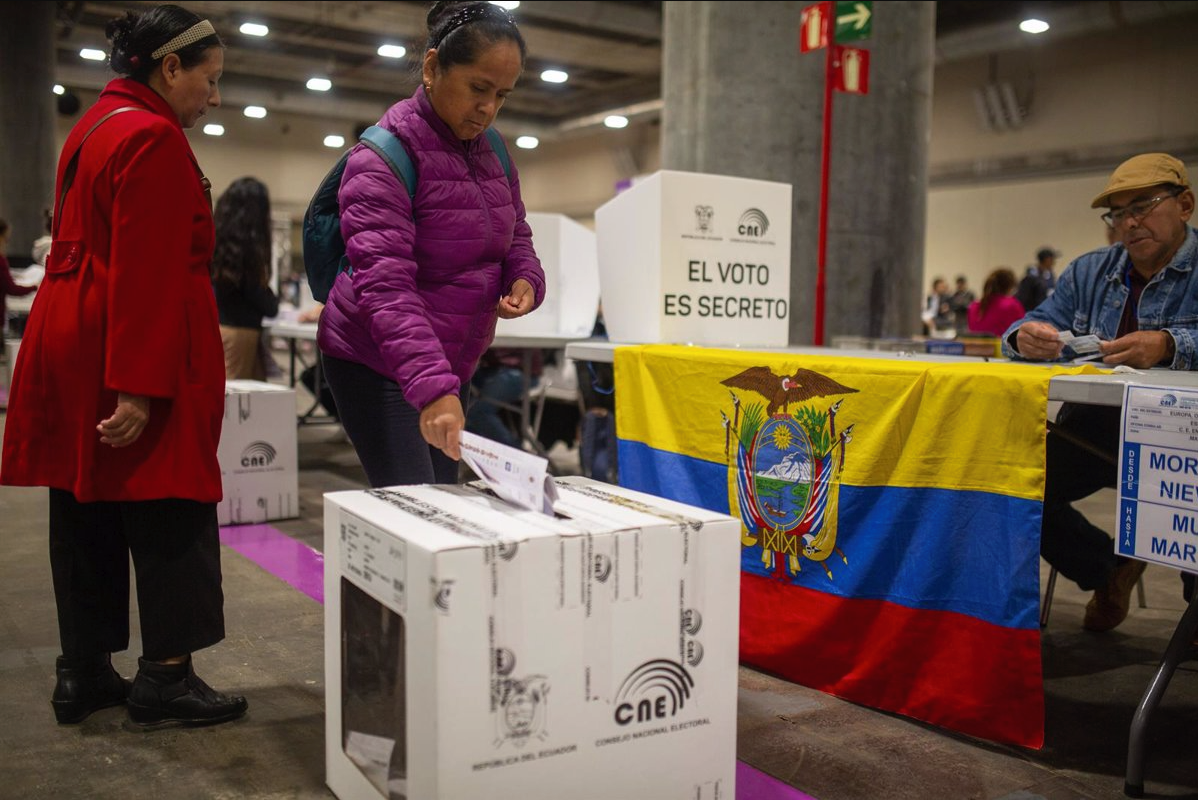In February 2025, Ecuador will once again hold general elections, where a presidential duo, 151 assembly members, and five Andean parliamentarians will be elected. This is an atypical cycle, as it follows the dissolution of the Assembly (known as “muerte cruzada”) through an executive decree issued by former president Guillermo Lasso in May 2023, which advanced elections for a short term. Daniel Noboa was elected to assume the presidency and is now also a candidate. At that time, the new government inherited the worst security crisis in the country’s democratic history, unemployment, and institutional fragility. These problems persist as the country faces another election.
For these elections, 17 political organizations are authorized to submit candidacies. Currently, 16 presidential duos have accepted their nominations. This number is extreme considering the country’s population of around 18 million inhabitants. In this scenario, Ecuador continues to grapple with 290 registered political groups eligible to nominate candidates for local elections. Thus, the number of candidates vastly exceeds the positions available for the various offices.
This historical situation creates two abnormal phenomena for a healthy democracy: fragmentation and volatility. On the one hand, there are too many candidates, while on the other, voters do not consistently support the same political party from one election to the next. In short, there is no loyalty or ideology. Instead, political personalization, outsiders, and populism have been exacerbated. Another issue that has worsened is that parties are selecting candidates from outside their ranks, as permitted by Article 94 of the Democracy Code. This means that it is not necessary to be a party affiliate to be a candidate.
Parties without their own candidates
This context raises a familiar reality from the last three elections: parties without candidates and candidates without parties. Although Ecuador’s electoral law allows the registration of alliances, only one has been recorded after the failed attempt by leftist movements and parties to form a programmatic agreement that included a government plan and the composition of presidential and assembly candidate lists. For the first time, the Citizen Revolution (Revolución Ciudadana, or RC), led by former president Rafael Correa, seeks allies and acknowledges that it lacks electoral strength after losing two presidential elections. Now, the RC has teamed up with a small movement called Reto (“Challenge”).
The left enters this election more fragmented than in previous ones, as several dissenting figures from Correa’s movement are running independently. Additionally, the indigenous movement is going it alone, with Leonidas Iza, the leader of the last two national protest cycles, as an alternative. For the right, a similar situation occurs but with less fragmentation. The traditional Social Christian Party and the party of President Noboa, ADN, are running separately, despite having been allies at the beginning of the current administration and aligning with the Citizen Revolution in the Assembly.
Polls: the first snapshots
Polls agree on the top four candidates in voter intention. The current snapshot places incumbent president Daniel Noboa in first place. He is followed by the Citizen Revolution’s Luisa González, then Jean Topic, running for the second time, and in fourth place, indigenous leader Leonidas Iza. There is an eight- to ten-point margin between the first and second positions, but none would win the presidency in a single round. Since Ecuador elects assembly members on the same day, a fragmented legislature could form due to the number of parties fielding candidates at the local and national levels. The number of seats in the Assembly has increased from 137 to 151.
In this contest, the central theme will once again be Correa supporters versus anti-Correa forces, as there is no visible third political force as an alternative. The absence of a political center becomes more pronounced. Under these conditions, President Noboa seeks to position himself as the anti-Correa candidate and also promotes his message of representing a new generation of politicians and a tough-on-crime and corruption government. On the other hand, critics accuse the current president of being inexperienced, too young to handle the country’s most severe issues, which include insecurity, organized crime, narco-politics, and the energy crisis.
One key issue in this election is the assassination of presidential candidate Fernando Villavicencio in the previous election, which raises concerns about how the campaigns will unfold. This is especially critical as the Attorney General of the Nation, Diana Salazar, has presented evidence in several trials, some with final sentences, regarding the nexus between politics and drug trafficking. Narco-politics is a significant topic in this race, as it highlights issues around political financing, the connections between drug cartels and the justice system, and their ties to political parties.
Among other developments, unlike previous elections, gender parity is now a reality. This is reflected in the composition of the presidential duos and the lists of candidates for the Assembly at both the provincial and national levels, as well as the inclusion of young candidates. This has forced parties and movements to reformulate their internal democratic processes to incorporate women and young people into political life. It remains to be seen whether this rule, beyond its application, strengthens the work of political organizations in developing talent through training schools, as outlined in the Democracy Code.











